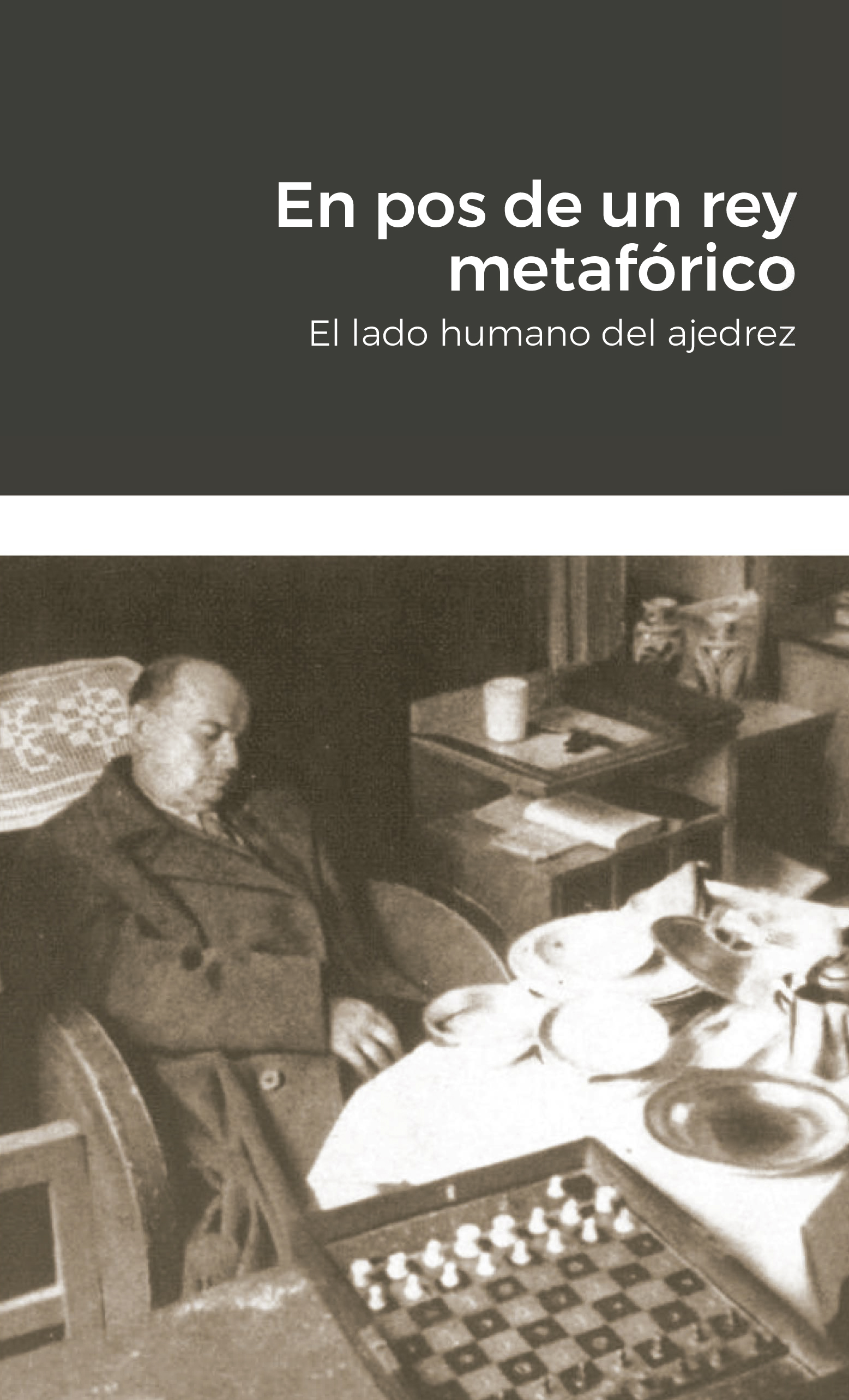‘Psychology is the most important factor in chess’.
—Alekhine
In pursuit of a metaphorical king
 This booklet is not only written for the hobbyist. If you are not a chess player, you can ignore the algebraic notation of the games that appear in this chapter and read exclusively my literary comments. I will be told that very little will be learned by studying my games or those of any other player other than what FIDE classifies as IM, International Master or GM: a Grand Master of the board (above the GMs there is only the world champion). I doubt that is true. Defeats that cause us humiliation are experienced by all: champions, teachers, club players and ordinary fans. And the best therapy for both the professional and the amateur is to meditate, and eventually write, about what has hurt us. While it is impossible for me to write a confessional testimony about the insights of an alien mind, I can talk about my emotions during games. In this chapter I present four games that I played with humans and one that I played with my computer.
This booklet is not only written for the hobbyist. If you are not a chess player, you can ignore the algebraic notation of the games that appear in this chapter and read exclusively my literary comments. I will be told that very little will be learned by studying my games or those of any other player other than what FIDE classifies as IM, International Master or GM: a Grand Master of the board (above the GMs there is only the world champion). I doubt that is true. Defeats that cause us humiliation are experienced by all: champions, teachers, club players and ordinary fans. And the best therapy for both the professional and the amateur is to meditate, and eventually write, about what has hurt us. While it is impossible for me to write a confessional testimony about the insights of an alien mind, I can talk about my emotions during games. In this chapter I present four games that I played with humans and one that I played with my computer.
The score sheets (1) for the games I played in tournaments in my teens and twenties, which were not FIDE endorsed tournaments, have been lost. At that time I was going through a great family storm and got rid of both my collection of chess books and my equipment to play—a story I have heard from other young people. It was precisely because of the problems at home that, like many others, I had taken refuge in the skirts of Caissa. I didn’t keep my youth games from tournaments, when I really fell in love with the goddess of chess, for the simple reason that my family problems stifled any interest in keeping them. Three of the games collected here, whose score sheets I kept, I played already in my twenties and thirties, when the family storm had passed.
My proposal in this chapter is to invite the player to talk about his emotions through his own games. The fan will be able to play with much more confidence after formally analysing those emotions, so that he knows himself a little better. It is a therapy not only about our defeats and setbacks: we also have to explain why some chess players suffer so much when we extract a victory from the opponent. The causes for which the chess player suffers are complex. It is known that intuitive psychology is not his forte. Lacking insight, even some world champions have ruined their lives as soon as they are crowned with the laurel of victory. What many ordinary professional and amateur chess players evade is the knowledge of how they were treated as children, and take refuge in Caissa as I did as a teenager.
Hardly any attempt has been made to write about the psychology of the chess player from the inner experiences of a player. Of the chess fans I know, no one takes seriously, for example, the study of the psychoanalyst Reuben Fine, The Psychology of the Chess Player. Fine argues that the game’s phallic symbolism is obvious: that the king represents the penis; the checkmate the castration, and other sublime imbecilities. Ernest Jones himself, Freud’s most orthodox acolyte and a great chess fan, speculates foolishly about ‘the mother and the paternal penis’ when addressing the simple fact of the change of the figure of the grand vizier into queen when the game supposedly transformed in its passage from the Arab world to the West. It is with the desire to show the player from the inside, rather than from psychoanalytical theories of no value, that I present my intimate confessions as well as some observations about my opponents.
______________
(1) For a Glossary of chess see: here.